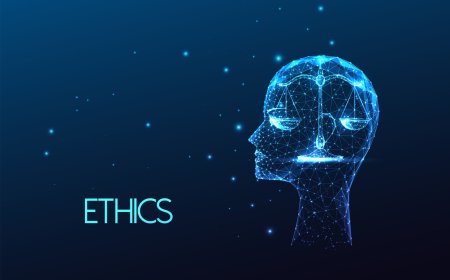Discover the Hidden Truth: How Researchers' Personal Biases Keep Breakthrough Discoveries in the Dark
Uncover the alarming truth behind the academic dilemma of researchers stifling crucial findings due to personal biases. Learn how this issue affects scientific progress and what can be done to promote objectivity and transparency in research.

Introduction
The world of academia is built on the foundation of knowledge sharing and the pursuit of truth. As researchers work tirelessly to make discoveries, their findings are published in scientific journals for the benefit of their peers and society as a whole. However, an often unspoken dilemma exists within this realm: the withholding of research results due to personal biases. In this article, we will explore the reasons behind this academic dilemma, the consequences of suppressing vital information, and potential solutions to ensure integrity and transparency in the research community.
The Roots of Personal Bias in Research
Personal bias in research can arise from various sources, including researchers' cultural, political, or religious beliefs, as well as their vested interests in maintaining the status quo or advancing their careers. These biases may influence the researcher's interpretation of data, leading them to selectively report or suppress results that challenge their preconceived notions or threaten their professional standing.
For example, a researcher with strong environmental convictions may feel compelled to downplay findings that contradict popular notions of climate change, fearing backlash from colleagues or the public. Similarly, a scientist who has built their career on a specific theory may be reluctant to publish results that call that theory into question, as doing so could tarnish their reputation or jeopardize their funding.
The Consequences of Withholding Research Results
The suppression of research results due to personal biases has far-reaching consequences both for the researchers involved and the scientific community at large.
1. Stifling Scientific Progress: When researchers withhold or misrepresent their findings, they hinder the advancement of knowledge in their field. Without access to accurate and complete information, other scientists cannot build upon previous work or challenge existing theories, ultimately slowing the pace of scientific progress.
2. Misinforming Policy and Decision-Making: Research findings often inform public policy and decision-making in various sectors, from healthcare to environmental policy. When biased research is published, or crucial information is withheld, it can lead to misguided policies that may have long-lasting consequences for society.
3. Eroding Public Trust in Science: The withholding of research results can also contribute to public mistrust of science and the scientific community. As cases of biased research and withheld findings come to light, public faith in the objectivity and reliability of scientific research may wane, undermining the credibility of the entire scientific enterprise.
Combating Personal Bias in Research
To counteract the detrimental effects of personal bias in research and ensure the integrity of the scientific process, several strategies can be implemented:
1. Promote Transparency and Open Science: Encouraging researchers to share their data, methods, and results openly can help foster a culture of transparency and rigor in research. Initiatives like open peer review, preprint servers, and open data repositories can facilitate the sharing of research findings and reduce the temptation to selectively report or suppress results.
2. Increase Diversity and Inclusivity: Promoting diversity and inclusivity within the research community can help create an environment where a broader range of perspectives are represented and valued. By encouraging the participation of researchers from diverse backgrounds, institutions can foster a more balanced and objective approach to research and decrease the likelihood of personal bias influencing results.
3. Train Researchers in Bias Awareness and Mitigation: Providing researchers with training in recognizing and mitigating personal biases can help them approach their work with greater objectivity. Workshops and seminars on topics like cognitive biases, unconscious bias, and ethical decision-making can equip researchers with the tools needed to identify and address their biases in the research process.
4. Create Accountability and Support Mechanisms: Establishing mechanisms for researchers to report instances of bias or withheld results, either anonymously or openly, can help bring these issues to light and facilitate corrective action. Additionally, providing support and mentorship to researchers who face dilemmas related to personal bias can encourage them to prioritize the integrity of their research over their personal convictions or interests.
Conclusion
The academic dilemma of withholding research results due to personal biases poses a significant threat to the integrity and progress of the scientific community. By implementing measures to promote transparency, diversity, and accountability, we can work together to ensure that researchers prioritize the pursuit of truth over personal convictions or interests. In doing so, we can safeguard the credibility of scientific research and foster a more reliable and objective foundation for knowledge generation and dissemination.
Disclaimer: The image(s) featured in this article are for illustrative purposes only and may not directly depict the specific concepts, situations, or individuals discussed in the content. Their purpose is to enhance the reader's understanding and visual experience. Please do not interpret the images as literal representations of the topics addressed.
What's Your Reaction?













































































































